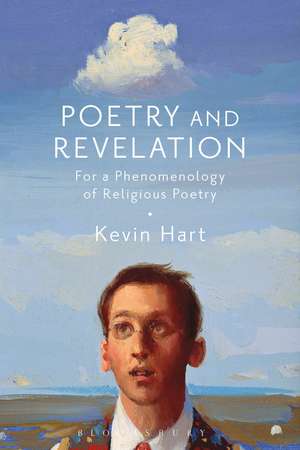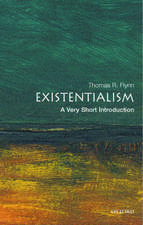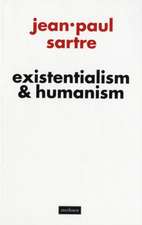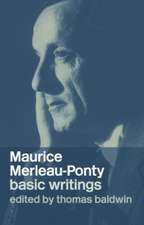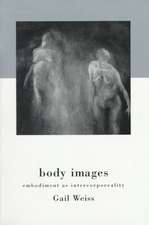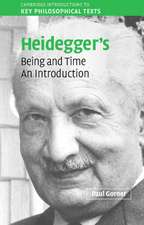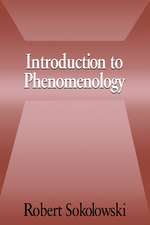Poetry and Revelation: For a Phenomenology of Religious Poetry
Autor Professor Kevin Harten Limba Engleză Paperback – 19 sep 2018
| Toate formatele și edițiile | Preț | Express |
|---|---|---|
| Paperback (1) | 182.65 lei 6-8 săpt. | |
| Bloomsbury Publishing – 19 sep 2018 | 182.65 lei 6-8 săpt. | |
| Hardback (1) | 776.24 lei 6-8 săpt. | |
| Bloomsbury Publishing – 19 apr 2017 | 776.24 lei 6-8 săpt. |
Preț: 182.65 lei
Preț vechi: 234.57 lei
-22% Nou
Puncte Express: 274
Preț estimativ în valută:
34.95€ • 36.59$ • 28.92£
34.95€ • 36.59$ • 28.92£
Carte tipărită la comandă
Livrare economică 05-19 aprilie
Preluare comenzi: 021 569.72.76
Specificații
ISBN-13: 9781472598301
ISBN-10: 147259830X
Pagini: 344
Dimensiuni: 156 x 234 x 31 mm
Greutate: 0.54 kg
Editura: Bloomsbury Publishing
Colecția Bloomsbury Academic
Locul publicării:London, United Kingdom
ISBN-10: 147259830X
Pagini: 344
Dimensiuni: 156 x 234 x 31 mm
Greutate: 0.54 kg
Editura: Bloomsbury Publishing
Colecția Bloomsbury Academic
Locul publicării:London, United Kingdom
Caracteristici
Discusses the poetry of major living American (Charles Wright), English (Geoffrey Hill) and Australian poets, as well as poetry written outside of the English language
Notă biografică
Kevin Hart is Edwin B. Kyle Professor of Christian Studies at the Department of Religious Studies, University of Virginia, USA. He also holds professorships in the Department of English and the Department of French. He has written a number of scholarly books, edited collections, and written several volumes of poetry.
Cuprins
IntroductionPart 11. Poetry and Revelation: Hopkins, Counter-Experience and Reductio2. "For the Life Was Manifested": On "Material Spirit" in Hopkins3. Eliot's Rose-GardenPart 24. God's Little Mountains5. "it / is true"6. Transcendence in Tears7. Uncommon Equivocation in HillPart 38. Susannah without the Cherub9. Darkness and Lostness: A Poem by Judith Wright10. "Only This": Some Phenomenology and Religion in Robert GrayPart 411. A Voice Answering a Voice: Philippe Jaccottet and the "Dream of God"12. Eugenio Montale and the Other Truth13. La Poesia è Scala a Dio: On Charles Wright's "Belief beyond Belief"Part 514. Contemplation and Concretion: Four Marian Lyrics15. Ambassadors and Votaries of SilenceBibliographyIndex
Recenzii
Hart's writing style benefits from his poet's ear, and Poetry and Revelation contains passages of great lyrical beauty as well as intellectual weight . Such passages demonstrate a harmonious marriage of academic virtuosity and beautiful writing, which gives the lie to any ill-judged claim that the relationship between poetry, philosophy, and religion is a zero-sum game.
Few scholars can claim the sort of wide-ranging expertise that we see in the work of Kevin Hart. He has made substantial contributions to Continental philosophy, Christian theology, and literary criticism, and, in addition to this academic work, he is one of today's finest Australian poets. In his new book Poetry and Revelation, we see these many elements together in one place. The result is a volume that conveys, perhaps better than any single previous publication, the scope of his scholarly interests and the ambition of his constructive project for extending the application of phenomenology in the Husserlian style to literary and theological material.
[T]his is a substantial contribution to the study of religious poetry, one which broadens and deepens the field of the phenomenology of religion.
Poetry and Revelation, a profound investigation into the relationship between poetry and religion, gives me a new vision of the Australian poet-critic Kevin Hart. One need not agree with his arguments. I for one do not. But that does not matter. In a long lifetime of trying to understand the vexed relationship between the imagination and revelation, I have arrived at the judgment that they are antithetical to one another. Hart argues the reverse. He does it with surpassing love for poetry, and with a poignant personal experience of Christian inwardness. His readings of Hopkins, Geoffrey Hill, Charles Wright, and of the Australian poets A.D. Hope, Judith Wright, and Robert Gray are fresh and invigorating. He is equally perceptive on the poetry of Jaccottet and Montale. Hart breaks new ground for all of us.
Poetry and Revelation shows all of the virtues we've come to associate with the writings of Kevin Hart: deep learning, exegetical brio, passionate attentiveness to the subtlest movements and capabilities of verse. In its close readings and larger argumentative contentions the book, like its central subject, is a constant source of surprise and revelation.
Few scholars can claim the sort of wide-ranging expertise that we see in the work of Kevin Hart. He has made substantial contributions to Continental philosophy, Christian theology, and literary criticism, and, in addition to this academic work, he is one of today's finest Australian poets. In his new book Poetry and Revelation, we see these many elements together in one place. The result is a volume that conveys, perhaps better than any single previous publication, the scope of his scholarly interests and the ambition of his constructive project for extending the application of phenomenology in the Husserlian style to literary and theological material.
[T]his is a substantial contribution to the study of religious poetry, one which broadens and deepens the field of the phenomenology of religion.
Poetry and Revelation, a profound investigation into the relationship between poetry and religion, gives me a new vision of the Australian poet-critic Kevin Hart. One need not agree with his arguments. I for one do not. But that does not matter. In a long lifetime of trying to understand the vexed relationship between the imagination and revelation, I have arrived at the judgment that they are antithetical to one another. Hart argues the reverse. He does it with surpassing love for poetry, and with a poignant personal experience of Christian inwardness. His readings of Hopkins, Geoffrey Hill, Charles Wright, and of the Australian poets A.D. Hope, Judith Wright, and Robert Gray are fresh and invigorating. He is equally perceptive on the poetry of Jaccottet and Montale. Hart breaks new ground for all of us.
Poetry and Revelation shows all of the virtues we've come to associate with the writings of Kevin Hart: deep learning, exegetical brio, passionate attentiveness to the subtlest movements and capabilities of verse. In its close readings and larger argumentative contentions the book, like its central subject, is a constant source of surprise and revelation.
